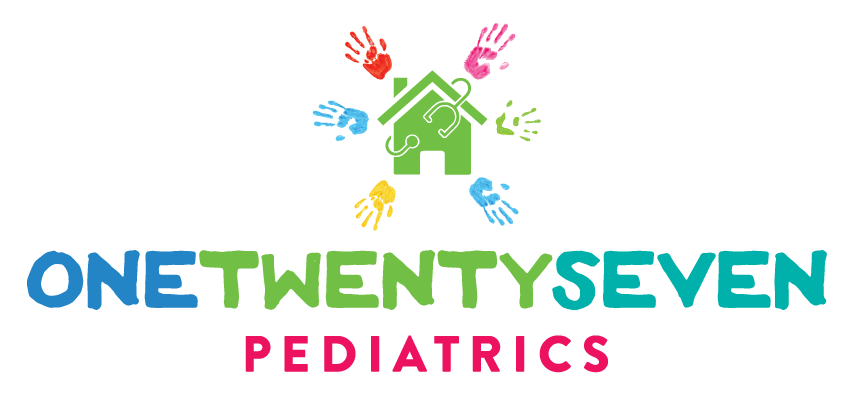Getting a baby to sleep in one of the most challenging aspects of parenting. As a pediatrician and lactation consultant, I often hear from parents who desire to have their baby sleep in their own crib, but just absolutely cannot get them to do it. It is certainly very frustrating when you are sleep deprived as a new parent and you just want your baby to sleep.
While not all babies are the same, there are a few things that you can do to move your baby towards independent sleep. While sleep training has adopted a negative connotation over the years, teaching your baby how to get the sleep that they need will never go out of style.
In this article, we will address some of the common things that I hear from parents regarding infant sleep.
Baby Cries When I Put Him Down
Your baby is genetically programmed to be near to you at all times. The job of a parent is to protect their vulnerable newborns from harm. While caring for your baby is a top priority, you as the parent also need to meet your own needs. Adults need to take time to eat and sleep themselves which makes putting your baby in their crib for sleep a parenting priority.
It can be quite frustrating for parents when their newborn baby wakes up and cries every time they are put down in the crib. There can be several reasons for this behavior.
How to Maximize Your Baby’s Sleep
- Babies become accustomed to being held or rocked to sleep. As they become used to this sleep conditioning, they are less likely to stay asleep when they realize that they are alone in their crib.
- A baby’s sleep pattern is developing. Newborns have shorter sleep cycles than older babies and adults. They wake more frequently.
- Hungry babies don’t sleep. Newborns have tiny stomachs and need to be fed often in order to meet their needs. This is true whether you are feeding formula, breast milk or a combination of the two.
- Reflux is uncomfortable. All babies have a certain amount of reflux. Their sphincter around the opening of the stomach is not as tight as adults and they spend the majority of their day lying down. This sets them up for refluxing stomach contents into their esophagus. However, not all reflux needs to be treated. If your baby is distressed by their reflux symptoms and/or they are not growing properly, consult your pediatrician to consider medication.
- Babies love routines. Establish a consistent bedtime routine that includes a warm bath, soothing music, or gentle massage. Use a sleep sack to keep them cozy and secure (or swaddle your young baby). Make sure the crib has a firm mattress and meets safety guidelines.
My Newborn Will Only Sleep When Held
If your newborn baby will only sleep in your arms and you want to transition them to sleeping in their bassinet or crib, there are strategies you can try to help establish healthy sleep habits. Often, you can break your baby of this sleep association with a little bit of strategy, time and patience.
1. Bedtime routine: Establish a consistent bedtime routine that signals to your baby that it is time to sleep. This can include activities like a warm bath, reading a book, or singing a lullaby. A predictable routine can help soothe your baby and prepare them for sleep.
2. Find the sweet spot for sleep: Pay attention to your baby’s sleep patterns and cues to identify their “sweet spot” for sleep. This is the window of time when they are drowsy but not overtired. Put them down for sleep during this optimal time. This will increase the chances of them settling in their bassinet or crib.
3. Consider swaddling: Swaddling provides a sense of security and mimics the snugness of being held. It also suppresses a newborn’s startle reflex. Use a lightweight, breathable swaddle blanket or sleep sack to ensure your baby is safe and comfortable during sleep.
4. Reduce distractions in the sleep environment: Create a calm and soothing sleep environment by minimizing loud noise, light, and stimulation. Use a white noise machine or soft music to drown out background noise and create a more conducive sleep atmosphere.
5. Address any physical needs: Ensure your baby’s basic needs are met before putting them down to sleep. Check that they are well-fed, have a clean diaper, and are at a comfortable temperature.
Remember, every baby is different. Some babies require more sleep than others. Certain babies need to sleep in the same environment every time they go down for sleep while others can sleep easily on the go.
My Baby Seems to Fight Sleep
You may know that your baby is tired, but they seem to be fighting against sleep.
One common reason for this is an overly tired baby. When little ones become overtired, it is more difficult for them to fall asleep and stay asleep. To prevent overtiredness, observe your baby for sleepy cues such as rubbing their eyes, yawning, or becoming less active. These cues indicate that it’s time for them to sleep.
Observe your baby for their wakeful windows of time. This is the amount of time your baby can comfortably stay awake between sleep periods. Each baby is different, but as a general rule, newborns can only tolerate short wake windows of around 45 minutes to an hour.
Patience is key. It may take some time and trial and error to find what works best for your baby. Be gentle and consistent with your approach. Consult your baby’s pediatrician for advice if you are still unable to establish a good sleep routine on your own.
My New Baby Wakes Up Often At Night
As you face the many sleepless nights of the first couple of months of age of your new baby’s life, you may be convinced that you will never sleep again. Take heart. While newborn sleep can be difficult, things do get better.
It is completely normal for newborns to wake up frequently during the night. There are several reasons why your newborn may be waking up every hour. An understanding of these reasons can help you navigate this phase with more ease.
- Frequent feedings. Newborns have tiny tummies that cannot hold much milk, so they need to eat more often to meet their nutritional needs.
- Day and night mix up. Newborns have immature pineal glands and therefore they do not secrete very much melatonin. This is the hormone that regulates day and night differentiation and sleep.
- Babies are used to the dark and quiet environment of the womb. Once they are born, they face the realities of the cold and bright world. They desire closeness with their mothers.
In the first few weeks, you can help your baby to start regulating their day and night rhythms by exposing them to light during the day and dark at night. While they are learning the difference, you can spend your days with them in a brightly lit room where family activities take place. Any nighttime interactions should be done as quietly and in as much dark as possible. During the daytime, you can also spend time in skin to skin with them or simply baby wearing them around the house during your daytime routine. This will give them some of the closeness that they desire.
Our Baby is a Night Owl
Now that you know how to conquer the newborn stage, let’s move on to sleep regressions and sleepless nights as your baby ages. I often hear from parents who tell me that they think that their baby is a night owl. They put their baby to bed, but are up with them every hour all night long.
After about 3-4 months of age, babies start to develop a more mature sleep pattern. We commonly know it as a sleep regression, but it really is a sleep progression. They develop the 90-120 minute sleep cycles that are hallmarks of adult sleep patterns. At the end of these periods of sleep, they will wake. As adults, we do the same. We are conditioned to put ourselves back to sleep without noticing these awake periods. Often, babies are not. The best way to help them through this stage is to pause before you go attend to them when they wake up. The less you intervene, the more likely your baby will go back to sleep on their own.
Follow These Steps for Better Baby Sleep
Bedtime Routine
As we talked about earlier, a bedtime routine is key. Here is a simple routine that you can follow:
- Feeding- depending on your baby’s age, they may need a feeding before bedtime.
- Brush teeth- yes, even just one cute little tooth. Get in the habit of brushing your baby’s teeth after they eat and before bed. Teeny tiny rice grain amount of fluoride containing toothpaste on a soft toothbrush is recommended for babies under age 2.
- Warm bath- night time baths help your baby to relax.
- Massage with lotion- Moisturize baby’s skin and help them to relax/
- Snuggly pajamas and sleep sack- you want your baby to not be too cold or too hot, but just right for sleeping in a cool room.
- Read a book- even early in life, children learn language from their parents reading stories to them
- Song/ sound machine- sing your baby a quiet song while you snuggle them and then turn on a white noise or sound machine.
- Bed- put your baby in the crib awake, but drowsy
Beyond the Routine
- Set up room for baby sleep: humans sleep best in cooler temperatures. This includes babies. Your baby’s room should be cool and they should be dressed in just enough layers to maintain their body temperature. Not overly hot but not overly cold.
- Don’t respond to every peep: Some babies make lots of noise in their sleep. Grunts and movements can alert you to a need or it can also just be your baby moving around in their active sleep cycle. Just like you, babies with mature sleep patterns wake every 90-120 minutes. They may cry or they may put themselves back to sleep. They need to learn the latter and so your job is to not respond to every peep. Give them a chance to put themselves back to sleep.
- Naps are your friend: Sleep begets sleep. A well rested baby will sleep better at night. Be sure to put your baby down for regular naps during the day and adhere to a routine sleep schedule.
- Crying is not dangerous: Some babies will cry for periods of time when they are making the crib transition or if they don’t know how to fall asleep on their own. Crying is a baby’s way of communicating. It is safe to let your baby cry for short periods of time while they are trying to figure out how to put themselves to sleep.
- Safety first: You want to keep your baby safe. Depending on your baby’s age, you can put them in a crib or bassinet. Either way, it should be a flat surface that is free of loose bedding, bumpers or stuffed animals. A young baby should also sleep on a firm surface with a tight fitting crib sheet and no pillows. A safe sleep environment reduces the risk of sudden infant death syndrome.
Developmental Milestones and Baby Sleep
In addition to the 3-4 month sleep regression, babies can have setbacks in their sleep routines at other times in their life. Newly acquired skills such as rolling, sitting or standing can interfere with a baby’s sleep. Certain developmental milestones such as separation anxiety can wreak havoc on your baby’s sleep routine. Remember that these times don’t last forever. Time and consistency will help you to overcome these times.
How to Put Your Baby Back to Sleep After Feeding
One of the biggest challenges that I faced as a new mother was getting my baby to return to sleep after I got up to feed her in the middle of the night. I also hear this complaint from the parents in my practice. There are a few things that you can do to help your baby to return to sleep. We have touched on some of these in earlier sections, but lets take a minute to review.
- Minimize the amount of light during feedings.
- Keep diaper changes quick and calm.
- Use a low light and speak to your baby in a soothing, gentle voice.
- Consider swaddling your newborn at night and throughout the feeding.
- Hand your baby off to your partner after you complete the feeding.
As a new mother, your goal is to care for your new baby as well as maximize your amount of night time sleep. These techniques will help you to accomplish that goal over time.
How Long is Too Long for My Baby to Cry?
When it comes to getting your baby to sleep in the crib, establishing a soothing bedtime routine is key. A consistent routine can help your newborn develop healthy sleep habits and make the transition to the crib easier.
Many parents wonder how long should you let a newborn cry. Young babies should be comforted pretty quickly. As your baby gets older, it is okay for the baby to cry for several minutes while they are working on their sleep at night. Often, if you let your baby cry for a few minutes, they will return to sleep on their own. This allows not only them, but you to get a good stretch of sleep. It also helps them to develop an important sleep skill in their crib at night.
It’s important to note that experts do not recommend letting a newborn cry it out. Newborns have limited self-soothing abilities and need to be comforted when they cry. Instead, try soothing techniques like gentle rocking, singing, or providing a pacifier to help your baby calm down.
How Can 127 Pediatrics Help?
127 Pediatrics is an at home pediatric practice that serves a small number of patient families with high quality, evidence based and convenient pediatric medical care. We see patients in Colleyville, Texas and the surrounding area. In addition, Dr. Wadley is a breastfeeding medicine expert who offers lactation visits, concierge breastfeeding medicine packages as well as online breastfeeding education.
Visit our website to schedule a free consult call today.
© 127 Pediatrics; November 2023
This article is for informational purposes only and should not be construed as medical advice.

Dr. Andrea Wadley is the owner, pediatrician, and breastfeeding medicine specialist for 127 Pediatrics. She has an established house-calls-only concierge pediatric practice in Colleyville, TX. She is also the owner and operator of the 127 Pediatrics Online Breastfeeding Medicine and Education Center.


